Through Their Eyes: COVID-19 Chronicles with Isabella Amagua
This post is part of a new series by The Water Project meant to highlight the perspectives and experiences of the people we serve and how the COVID-19 pandemic is impacting them. We invite you to read more of their stories here.
Our team recently visited Bukhaywa, Kenya to conduct a COVID-19 prevention training (read more about it below!) and monitor their water point, Ashikhanga Spring. Shortly after, we returned to check in on the community, offer a COVID-19 refresher training, and ask how the pandemic is affecting their lives.
It was during this most recent visit that Isabella Amagua shared her story of how the coronavirus is impacting her life. Isabella is a 29-year-old farmer and mother living in Bukhaywa.
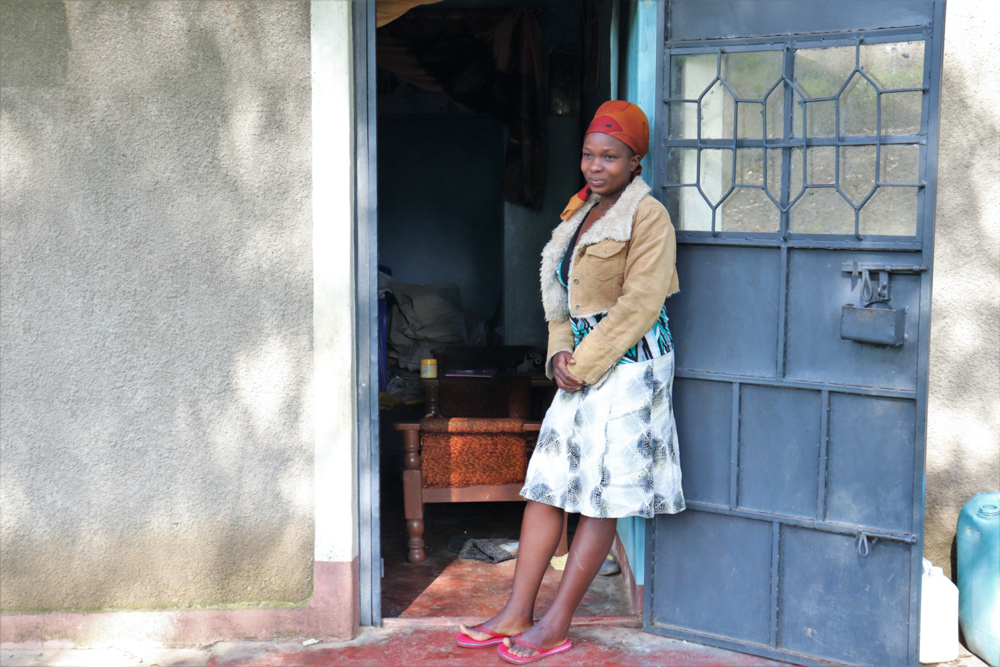
Isabella Amagua looks out from the front door of her home in Bukhaywa as she watches her kids play.
Isabella is invested in preserving the safe and clean water at Ashikhanga Spring, which is why she serves as Secretary of the spring’s water user committee. The elected committee members work together to help manage the water point’s maintenance and care, and inspire their neighbors to do the same. Field Officer Georgina Kamau Wanjiru, who met Isabella outside her home to conduct the interview, noted that Ashikhanga Spring is indeed in excellent condition, and its environment clean. A clear sign of an active and respected water user committee, Georgina noted.
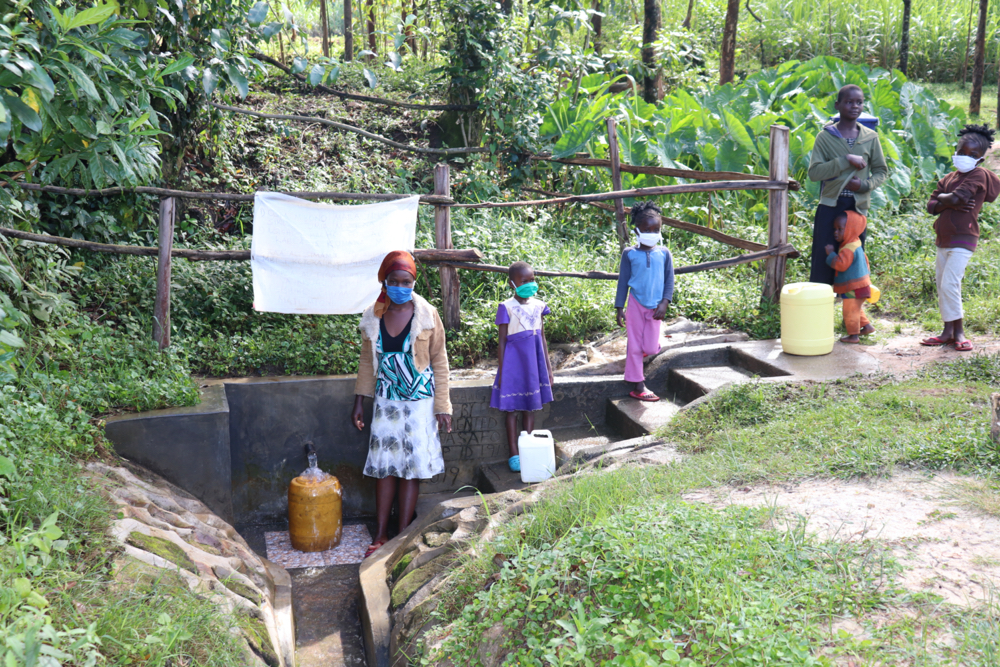
Isabella with her daughters and other community members at Ashikhanga Spring. The COVID-19 prevention reminders chart hangs on the spring’s fence from our first sensitization training in Bukhaywa when the pandemic began.
As a mother, Isabella has been torn throughout the pandemic between trying to go about her daily work and trying to watch her kids at home to keep them safe. All children are home from school due to Kenya’s national coronavirus-related school closures, which impact both adults and children. Isabella’s dilemma with rearranging her work-life balance is felt the world over, as so many families try to adjust routines and expectations for everyday life. Still, it isn’t easy.
Isabella shares what has changed in her community since the protection of Ashikhanga Spring, and how the pandemic has changed her work-life balance.
Both Georgina and Isabella observed physical distancing and other precautions throughout the visit to ensure their health and safety. The following is Isabella’s story, in her own words.
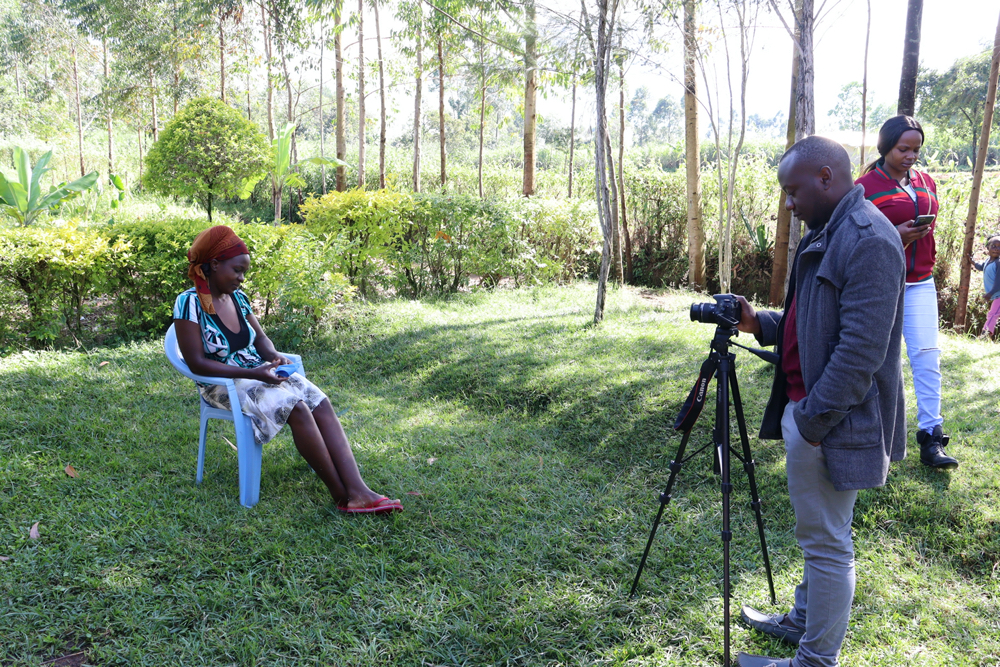
Isabella sits for her interview conducted by Field Officer Georgina Kamau Wanjiru and camera operator Allan Amadaro.
“Waterborne diseases such as typhoid and diarrhea no longer present cases here, like my mother who once suffered from typhoid. Ever since the spring installation, no one has suffered from such cases. Hygiene and sanitation have also improved since the water is easily accessible.

Isabella washes her hands with soap clean water from the spring using the tippy tap handwashing station our team helped install at the spring during our first COVID-19 sensitization training in Bukhaywa.
Before the installation of the water point, we used to go far to get clean water. But now that the water closer to us is clean, we use it for all purposes, mainly drinking. This has helped us because, with the pandemic and social distancing rules, we would have risked our lives going too far to access clean water.
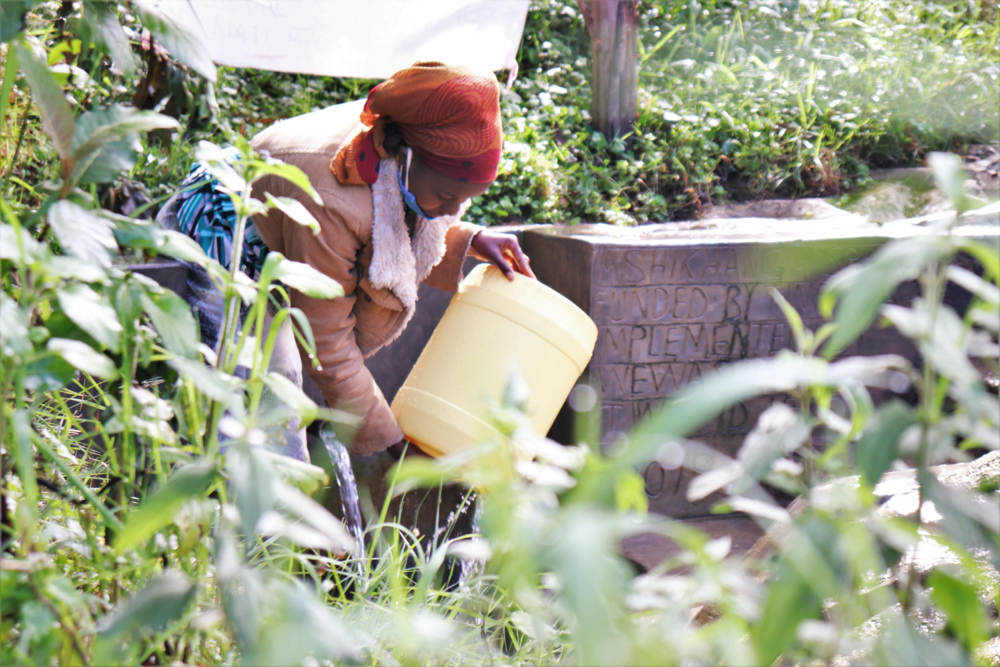
Isabella washes her jerrycan before each time she fetches water, just like she learned at the health and hygiene training our team led upon the completion of Ashikhanga Spring.
Fetching water has changed because of the new rules, like no touching the pipe, and children no longer hang around the spring or play with water because of social distancing. They fetch water and return home immediately.
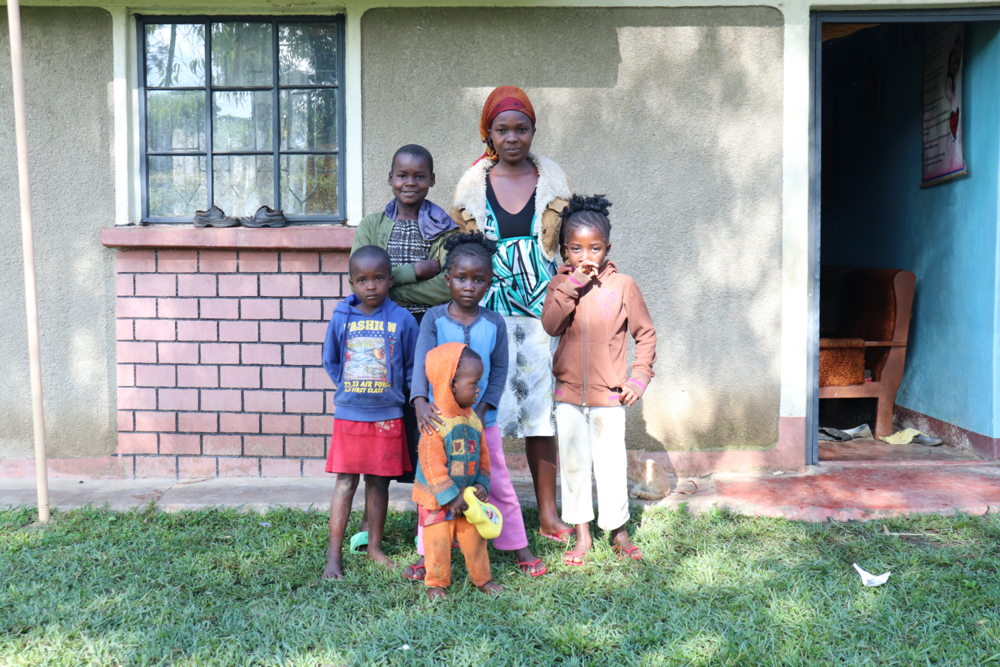
Isabella with her children and some of the neighbors’ kids – they were all playing together.
Now that the children are at home, the food budget has gone up; since they use a lot of energy playing, they also need a lot of food.
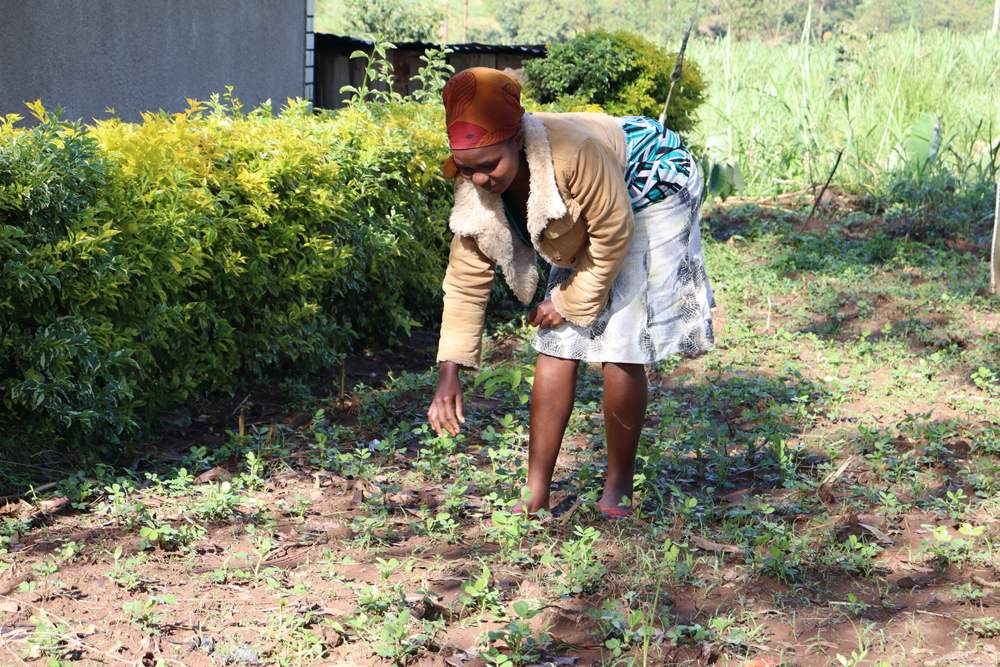
Isabella weeds her kitchen garden behind her house.
We have handwashing stations installed in our homes and at the spring. We ensure that we wear masks whenever we leave the house. Social distancing is observed at the spring and at the market…We are hoping everything will get back to normal and all restrictions will be lifted, but for now, safety is a priority.”
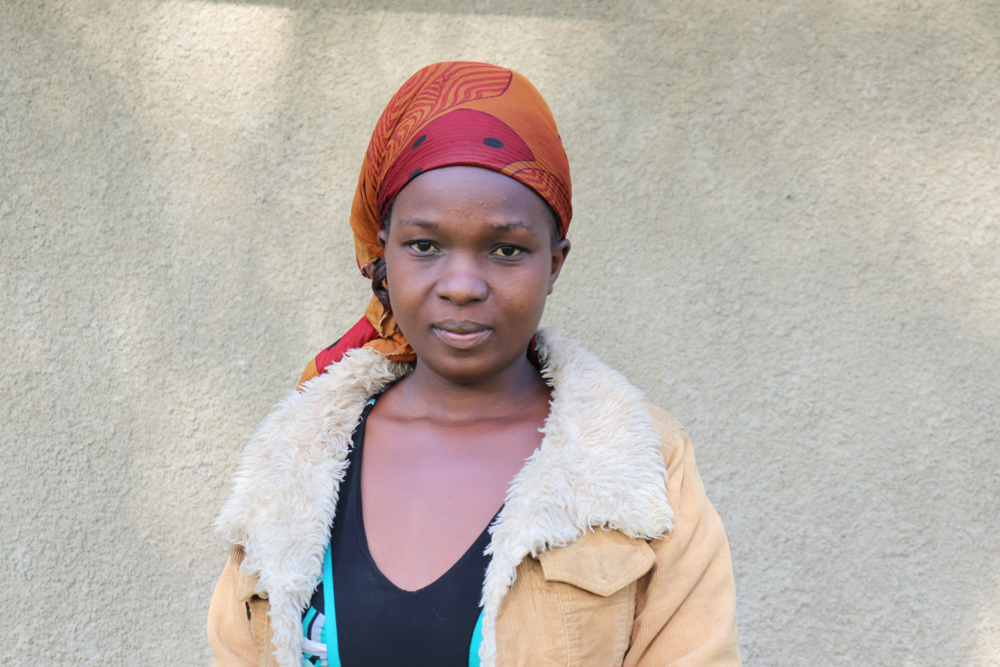
Isabella Amagua
When asked where she receives information about COVID-19, Isabella listed the radio, television, and our team’s sensitization training.
What has been the most valuable part of the COVID-19 sensitization training you received from our team?
“Learning how to construct handwashing stations, and the proper way to wash hands.”
Home More Like ThisTweet